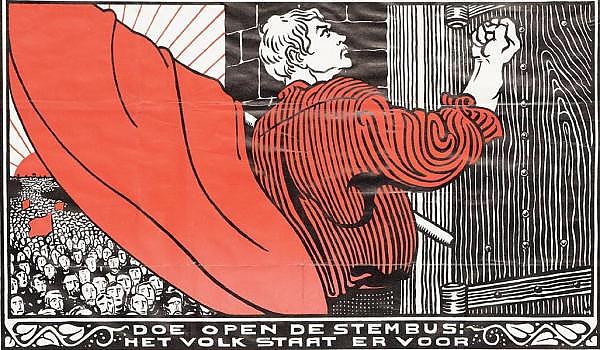Invisible no more
Invisible no more

This year we celebrate the fact that one hundred years ago the Dutch government introduced universal suffrage, giving all citizens officially an equal political voice. In comparison, a hundred years before that only a handful of rich men elected the parliament and the vast majority of the population had no say over the running of the country. “We want the vote – or revolution” was the slogan of the movement for a broader franchise.
A century on and our parliament works in more or less the same way, with just a few changes: the voting age has been reduce to 18, and voting has ceased to be compulsory.
But the Netherlands and the world have in the same period changed fundamentally, becoming unrecognisably different. In particular, the last forty years have seen universal suffrage lose its meaning. The government has distanced itself from tasks it previously performed, and public services have been privatised, loosening the state's grip on the economy. International agreements and the broadening of European cooperation have limited the Dutch parliament's room for manoeuvre ever further. Referenda were introduced, but almost always ignored, and then abolished. The poorer a neighbourhood, the fewer people vote. A hundred years after the introduction of universal suffrage, we are once more seeing a group of people excluded. Not because they no longer have the right to vote, but because they don't see the point of doing so, believing that whatever happens “politics won't work for us”.
The vote against the European Constitution by the people of France and the Netherlands in 2005, as well as the fact that these were ignored, was in many views the beginning of a fundamental change. The majority wanted to bring to an end the dominant neoliberal project that put the market before people. In the UK this even led to the plan to leave the European Union. In France too, the newcomer Immanuel Macron was elected on the basis of a promise to break with the establishment. When he lowered taxes on the rich and on major corporations further, the Gilets Jaunes – the 'Yellow Vests' - arose: here and no further. We, the ordinary people, will never again be invisible.
With the rise of the Gilets Jaunes the questions of what our democracy in its present form is worth, and how the real voice of the people can express itself within that form - compulsory voting? the reintroduction of referenda? the democratisation of the economy? - are once again being raised.
This article first appeared as the introductory editorial to the January, 2019 issue of the SP periodical Spanning, which focused on the crisis of democracy
- See also:
- Dutch elections
